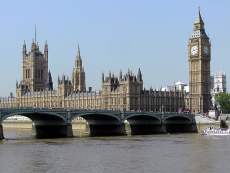
Theresa May was born nearly sixty years ago on the 1st October 1956 in the coastal town of Eastbourne in the South East to Zaidee Mary and Hubert Brasier. She came from a relatively humble background, certainly compared to our former prime minister, David Cameron. Her father was a vicar of the Church of England, and whilst she did spend some time at an independent school, she spent much of her childhood in the state school system. This did not stop her from getting into Oxford university and, eventually, from becoming Britain’s Prime Minister – and Britain’s second female Prime Minister, the first being Margaret Thatcher, who first came to power in 1979.
She has come to lead the country at what many believe to be quite a hazardous time for the UK in light of the British people’s vote to leave the EU. It is her job to make our exit from the EU work – and everybody, including those who voted to leave the EU, accept that this will be a difficult challenge.
She began her leadership of the country with a speech which signalled that her focus as prime minister will be on social injustice, her government a government for the disadvantaged working classes of the nation:
“If you’re from an ordinary working class family, life is much harder than many people in Westminster realise. You have a job but you don’t always have job security. You have your own home, but you worry about paying a mortgage. You can just about manage but you worry about the cost of living and getting your kids into a good school.
If you’re one of those families, if you’re just managing, I want to address you directly.
I know you’re working around the clock, I know you’re doing your best, and I know that sometimes life can be a struggle. The government I lead will be driven not by the interests of the privileged few, but by yours.”
For many, this suggested that she was positioning her government towards the centre ground of the political spectrum, with a message which echoed the sorts of things Ed Miliband was saying during his time as leader of the Labour party. It is a message which aims to appeal beyond the confines of the Conservatives’ core voters, arguably in an attempt to pick up stray voters from the Labour party, which rather than aiming for the centre has moved leftwards under the leadership of Jeremy Corbyn.
Her first speech as PM also had in it a big nod to the union of the United Kingdom of England, Scotland, Wales and Northern Ireland:
“David Cameron has led a one-nation government, and it is in that spirit that I also plan to lead.
Because not everybody knows this, but the full title of my party is the Conservative and Unionist Party, and that word ‘unionist’ is very important to me.
It means we believe in the Union: the precious, precious bond between England, Scotland, Wales and Northern Ireland.”
Image: By Adrian Pingstone (talk · contribs) (Self-photographed) [Public domain], via Wikimedia Commons

0 Comment:
Be the first one to comment on this article.